Being a teenager is a challenging, exciting, and confusing period in every human’s life. It is the crucial transition period between childhood and adulthood, with all its responsibilities. During these years, teenagers are exposed to significant external and internal struggles. Now imagine not having the time to navigate this period well because there is no smooth transition between childhood and adulthood. This is what happens in the case of teenage pregnancies.
Kenya has had the highest rate of teenage pregnancy in East Africa, with 15% of girls aged 15-19 having already given birth, and another 3% pregnant with their first child1. The vast majority of these are unintended. The reasons for this are multifaceted, based in poverty, neglect and absence from education or employment and compounded by insufficient funding for reproductive health services and a lack of comprehensive sex education in schools. We have now also seen that COVID-19 has dramatically increased the rates of teenage pregnancy, with some reports of it increasing by up to 40% during lockdowns.2 Outcomes and life for teenage mothers and their children are statistically worse, with as few as 2% of mothers returning to school3, poorer (maternal and child) physical and mental health and lower parenting capabilities.4 The problem is multigenerational, with children facing ongoing social problems and daughters born to teen mothers three times as likely to also become mothers during their own teenage years.
We therefore prioritise supporting teen mothers to ensure that they: have healthy pregnancies and babies; learn to be good parents with an effective support network; and that they can work towards empowerment via finishing school, training or employment/sustaining a business.
It is our wish in 2022 to assist 350 teenage mothers.
Macheo has been carrying out this intervention since 2014 and has continuously evaluated and improved the intervention.
The Key Performance Indicators (KPI’s) that we use to measure our success for this intervention are:
The mother….
A video has been made about this intervention, and can be viewed here.
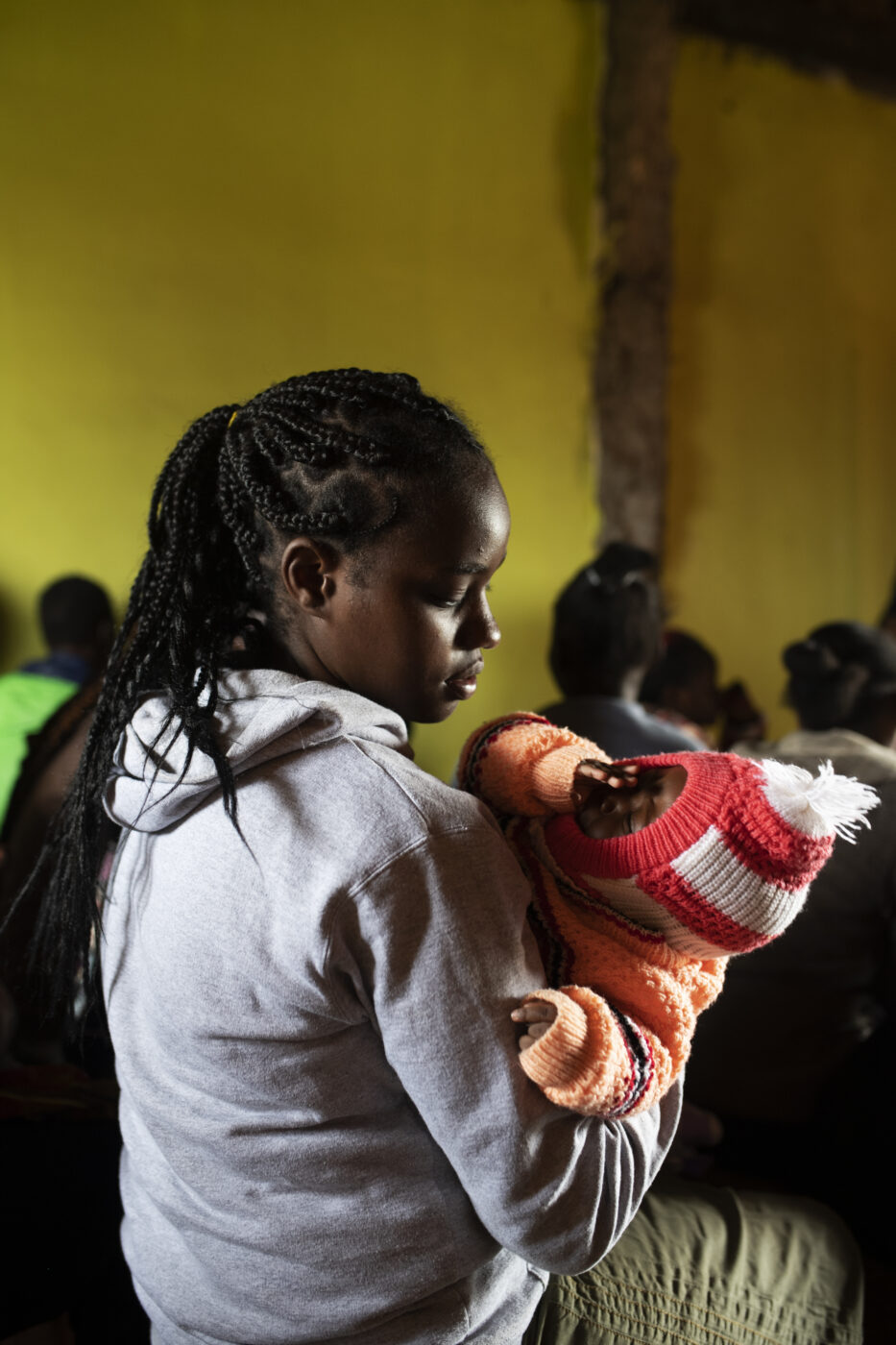
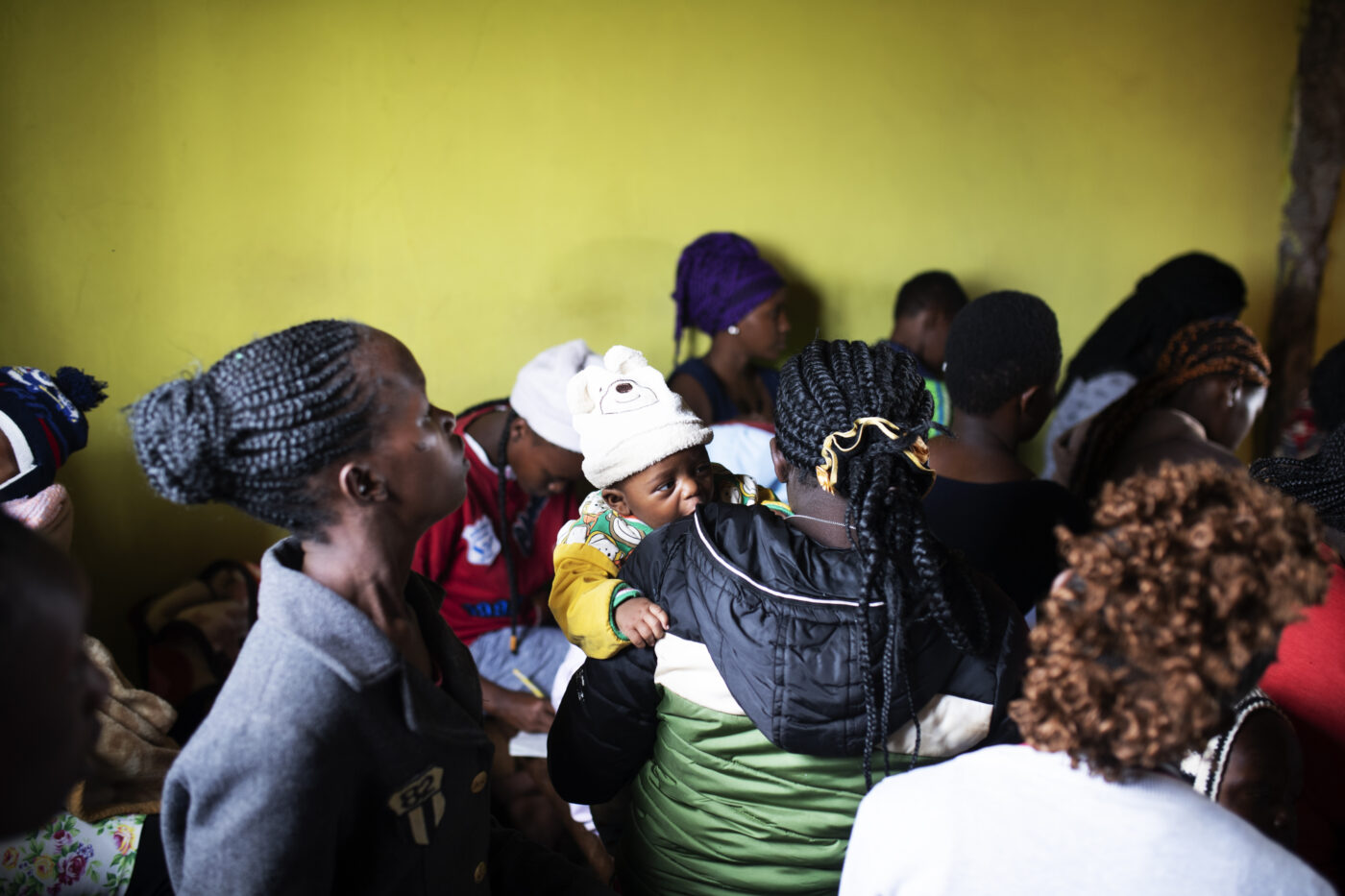
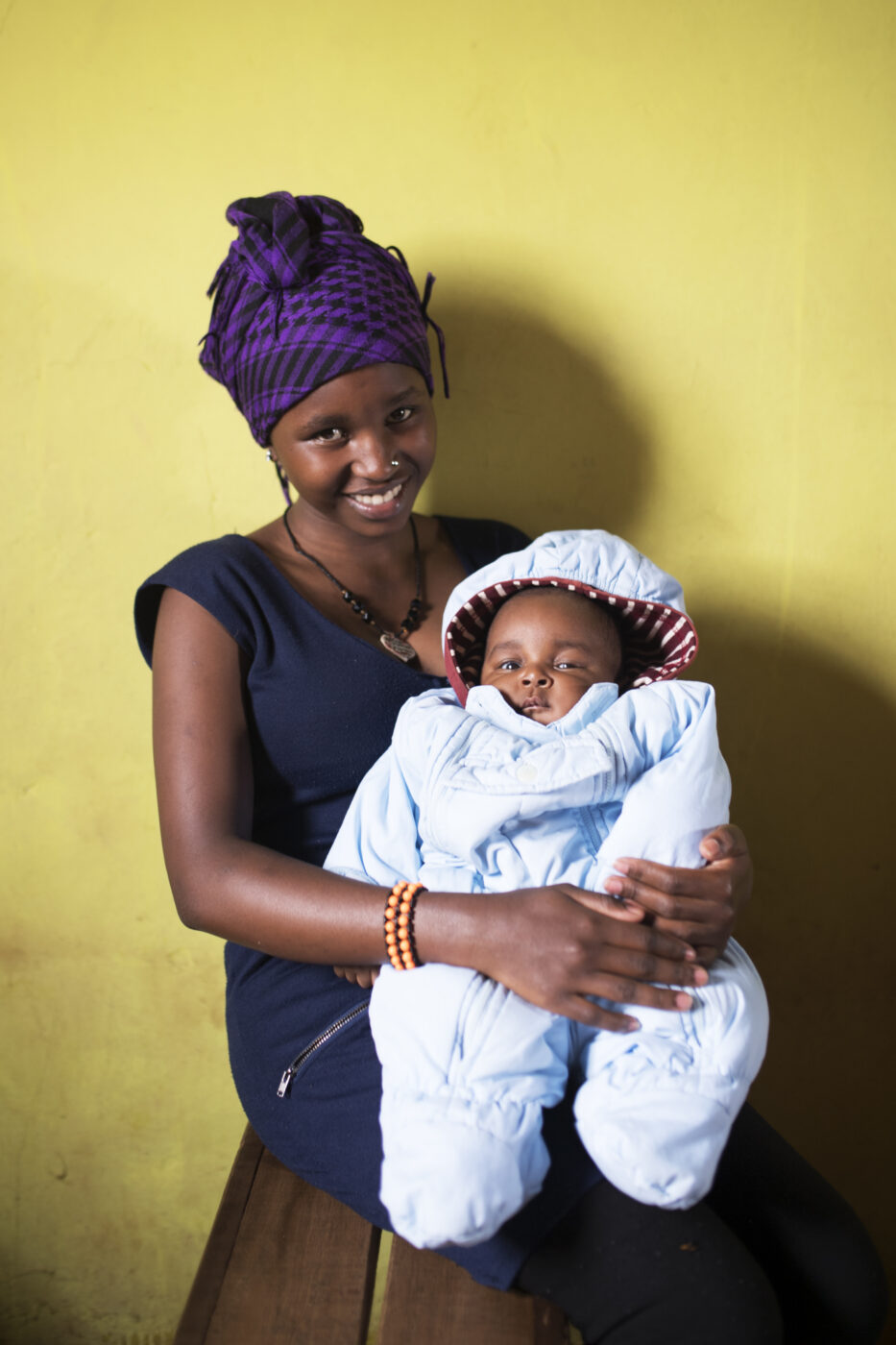
Julie (not her real name), now 13 years old, is the firstborn in a family with five siblings. She and her siblings stay with their mother and stepfather in the camps of a coffee plantation.
The school of Julie identified her to need the help of Macheo.
She is in class six of her primary school. She got identified because she was unwell, so the social worker referred Julie to the health intervention. The health intervention advised her to take a pregnancy test. The test came out positive, and Julie now got referred to the teen mom intervention. After some examinations, the doctors figured she was around six months pregnant. No one knew where the man responsible for her pregnancy was, and no one could trace him.
Before her pregnancy, Julie her home situation was already bad. Her stepfather was abusing her and her mother a lot. The stepfather got even more abusive after he found out about her pregnancy. The abuse made Julie, her mother and her siblings leave to another (safer) house. In this house, Julie shared a mattress with her five siblings. This mattress was old and tiny. Through the IPLC intervention, her family got two mattresses and some blankets. The mattress was not only given to provide comfort for her family, but also to decrease the significant risk of pneumonia.
After the traumatic abuse of the stepfather, Julie and her mom received counselling through the mental health intervention. The counselling helps them both a lot to process the traumatic events.
To make sure Julie and her baby will not have more difficulties during the first 1000 crucial days, Julie started her process at the prenatal clinic. The prenatal clinic will make sure Julie and her baby will progress well during the last few months of her pregnancy. Julie also registered for Linda’s mama insurance.
Now, Julie is still attending school under the supervision of the interventions and her teachers.
Julie her mother used to be a casual labourer around the coffee plantation, so having a steady income was difficult. Most of the time, there was no work for her. Because of the Coronavirus, the job shortage in Kenya is even more massive than before. Macheo empowered her mom with a greengrocery so that she can support Julie and her baby with enough food and the baby’s needs. Julie is progressing well, and she is now waiting for her newborn.
Macheo has been working with unit costs since 2019 and this has really many benefits, it helps us to get a better understanding of our costs compared to our impact. It has also really raised the cost awareness of Macheo’s staff, leading to gains in efficiency, thus enabling us to help more children with the available resources.
In this unit costs we have calculated all necessary costs, for 1 teenage mother and her (unborn) baby.
Macheo can help 1 teenage mother for Kenyan Shilling 10,552 (87 euro)
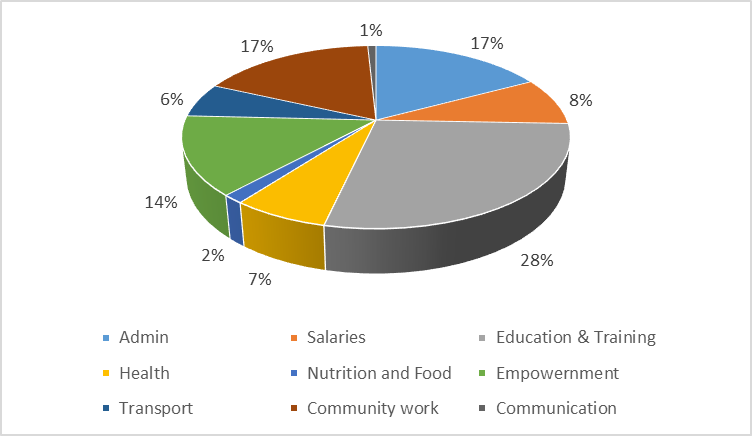
The unit costs to assist one teenage mother is budgeted in 2022 to be 10,552 Kenyan Shilling.
in the graph above you can see how this amount of 10,552 is divided over different accounts.
Biggest portion (28%) is going to “education & training” which is about teaching vocational skills that can help the girls earn an income or the costs to finish formal primary or secondary education, the 17% needed for “nutrition and food” is support for the baby in case it needs formula milk (which is very expensive in Kenya).
“Empowerment” takes on average 14% of the costs and contains the costs of starting up a business if they choose not to go back to school.
The “community work” costs (17%) are the costs needed for identification of the girls and to assess their needs, so that Macheo makes the right choices and refers to the right interventions.
The 7% for “health” is normal health issues that might arise, the Government of Kenya pays the costs of delivery in public hospitals.
Other services the teenage mothers might need, such as counselling for example, are provided for from different interventions Macheo offers.
First step in measuring the difference we make to the children who need our help is to choose who will benefit most from the help we can offer. This choice is being made by holistic social workers who identify the need, look at root cause and refer the children and/or caretakers to help from Macheo colleagues, the Government, or others who are able and willing to help.
The identified needs and root causes are captured in Macheo’s (anonymized) database.
When referred internally our specialist colleagues start with a baseline measurement on the Key Performance Indicators of their specific intervention. During the process they track progress towards this and when completed they rate the clients again. This shows the difference the intervention made. All data is collected through apps on mobile phones and displayed in dashboard, such as the one below, which is specifically for this intervention:
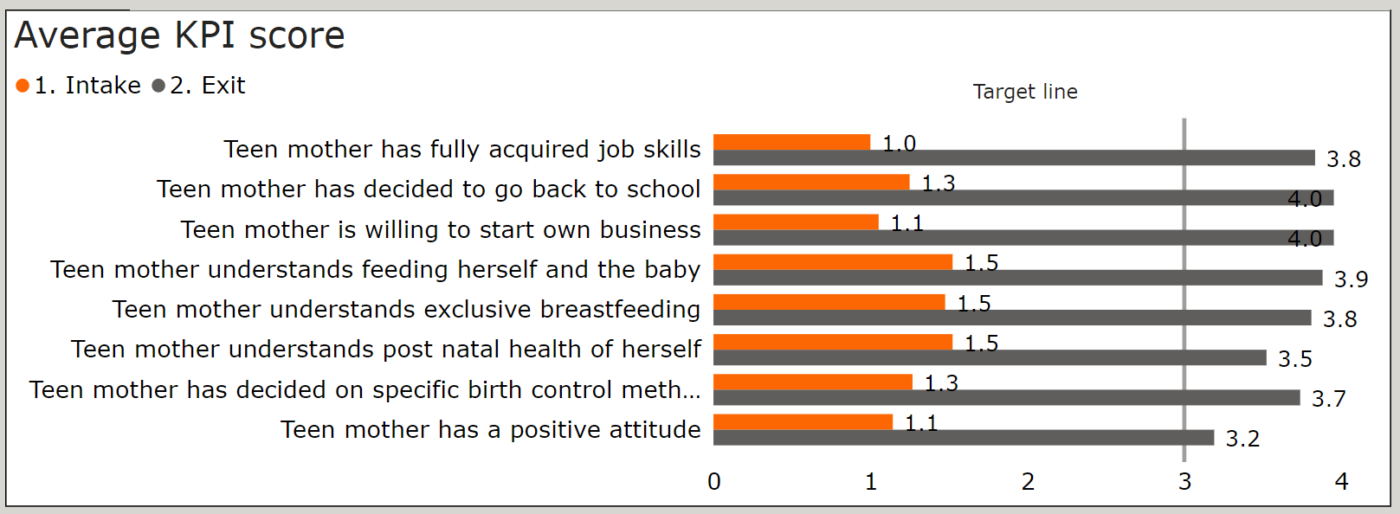
Since these challenges are often complicated, one child or caregiver could receive multiple interventions. After all interventions are completed the holistic social workers comes back to the family and repeats the intake needs assessment. The difference between the first and final needs assessment shows whether the interventions had the desired impact on children’s well-being.
We hope you will join us in enabling Macheo to help more children and/or caregivers who need assistance through Assisting Teenage Mothers. Macheo reports in April, August and December/January.
Macheo has 1 great colleague working with full dedication in this intervention. She is under the management of Ibrahim Hassan, whose personal story can be read here.
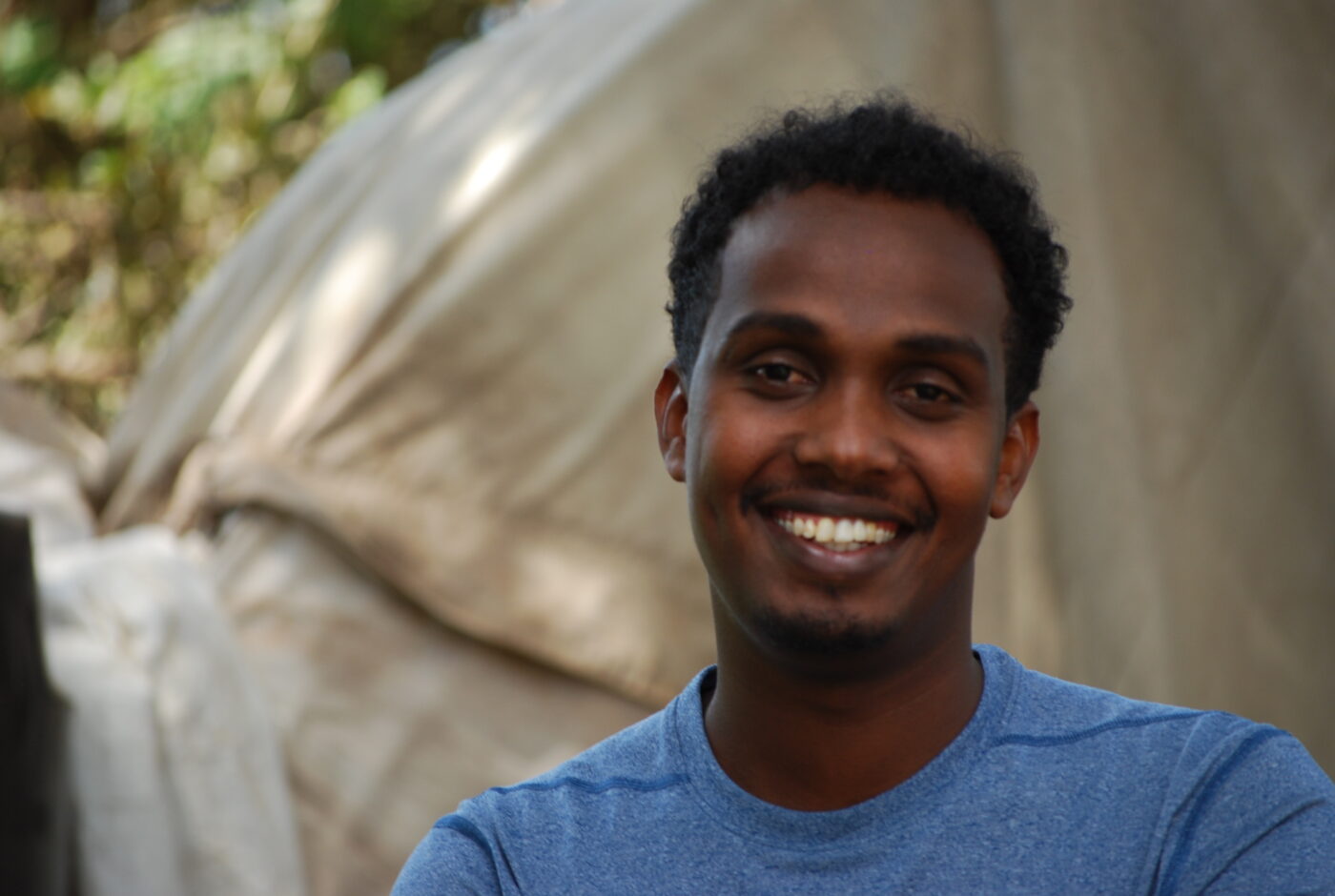
Charitable work must be done with care! Have you become enthusiastic about the way we work too? Join us! We can achieve much more together.
More information Donate now